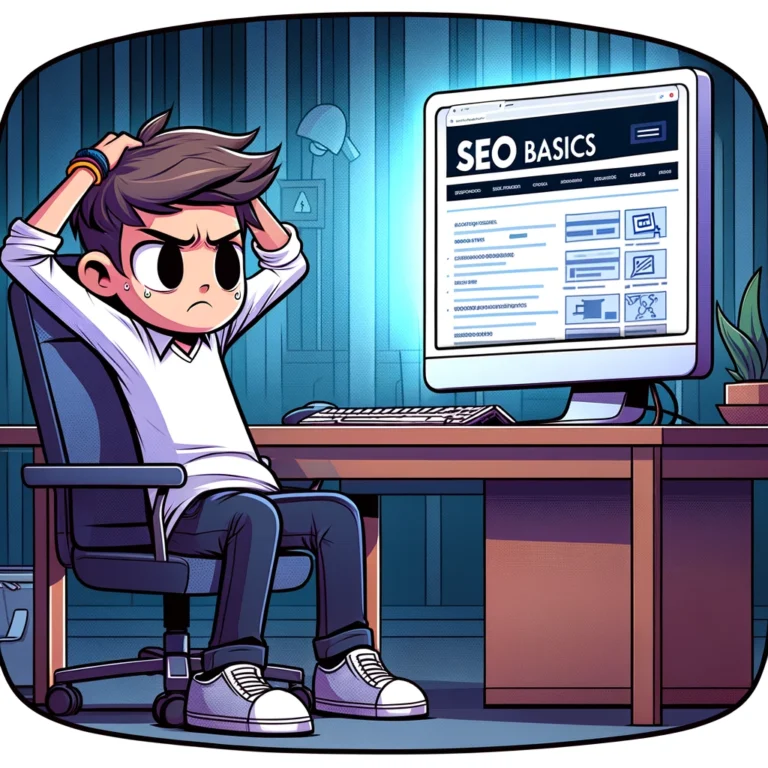Search Engine Optimization, or SEO, is a crucial component of modern digital marketing strategies. At its core, SEO is about enhancing your website’s visibility in the organic search results of search engines like Google or Bing. This visibility is crucial because it helps drive more traffic to your site, without the direct cost associated with paid advertising. However, mastering SEO isn’t an overnight process—it is complex, ever-evolving, and full of potential pitfalls. As a beginner, recognizing and avoiding these common mistakes can set the foundation for your long-term success in the digital landscape.
Ignoring the Importance of Keyword Research
One of the foundational elements of SEO is keyword research. It involves identifying the words and phrases that potential customers use in search engines to find services or products like yours. Failing to conduct thorough keyword research can result in targeting terms that are either too competitive, not sufficiently searched, or not aligned with the user’s intent. Effective keyword research should go beyond merely identifying high-volume search terms. Beginners must delve into understanding the intent behind the searches—whether users are looking to buy, learn, or solve a problem. Tools such as Google’s Keyword Planner or SEMrush can offer valuable insights into keyword metrics and trends, guiding your SEO strategy toward more informed decisions.
Neglecting Website Performance and User Experience
It’s not just keywords that matter. Google places significant emphasis on the user experience (UX) and the performance of a website. A common mistake beginners make is overlooking these aspects, focusing solely on content and keywords. However, how your website performs on devices of all sizes, its page loading speeds, navigability, design simplicity, and accessibility play a crucial role in SEO. Search engines favor websites that load quickly and offer a smooth user experience. Slow-loading sites, complex navigation, and not having a mobile-friendly design can harm your rankings. Tools like Google’s PageSpeed Insights provide actionable recommendations that you can use to improve your site’s performance. Implementing these changes not merely benefits your SEO but also enhances overall user engagement and retention.
Overlooking Content Quality and Relevance
While keywords are vital, they need to be woven into high-quality, relevant content. A common error among SEO beginners is creating content that is overly optimized—stuffing keywords into their articles in an unnatural way. This approach not only hinders readability but is also penalized by search engines, which prefer content that genuinely answers users’ questions and provides value. Instead of stuffing keywords, focus on addressing topics comprehensively, answering potential questions that a user might have about a specific topic. This approach not only keeps your content engaging but also increases the likelihood of covering a broader array of related keywords naturally. Remember, great content is more likely to earn backlinks from credible sites, which is another significant ranking factor in SEO.
Forgetting About Metadata
Metadata—specifically title tags and meta descriptions—plays a pivotal role in SEO. These elements describe your page’s content to search engines and help users decide whether to click on your link in search results. Ignoring the optimization of metadata is therefore a fundamental error. Title tags should be concise, informative and include primary keywords. Meta descriptions need to provide a brief overview of the page’s content, enticing users to click while also incorporating key phrases seamlessly. Although meta descriptions themselves don’t directly influence rankings, they affect click-through rates, which are indicative of a page’s relevance to the search query – a factor that search engines consider.
Not Utilizing Analytics and Adjusting Strategies
Finally, one of the most critical yet overlooked components of SEO for beginners is the failure to monitor, analyze, and pivot strategies based on data. Implementing SEO techniques without measuring their effectiveness results in missed opportunities for optimization and refinement. Regular use of analytics platforms like Google Analytics helps you understand user behavior on your site, the performance of individual pages, and the overall efficacy of your SEO strategy. These insights should guide your ongoing efforts, helping you to fine-tune aspects like content, keywords, and performance to better meet the needs of your audience and the demands of search engines.

Failing to Optimize for Local Search
In the vast world of SEO, local optimization is often one of the elements beginners either overlook or miss handling properly. The assumption that broader SEO tactics are enough can lead your business to miss out on a significant amount of local traffic. Local SEO is particularly crucial for brick-and-mortar businesses looking to attract nearby customers. Optimizing for local search involves several key strategies that go beyond common SEO practices. This includes claiming your Google My Business listing, adding your business to local directories, and including region-specific keywords in your content. For example, if your business is a café in Austin, Texas, you would want to include terms like “cafes in Austin” or “best coffee in Austin” in your SEO strategy. Another aspect of local SEO involves ensuring your name, address, and phone number (NAP) are consistent across all online platforms. Inconsistencies in these details can confuse search engines and lead to lower rankings in search results. Similarly, garnering reviews from local customers can also significantly boost your visibility and credibility in local search results. Local SEO is not just about showing up in search results, either. It’s about creating a community presence that local consumers trust and turn to. By embracing local SEO, businesses can create deeper connections with their local markets and build a loyal customer base right in their backyard.
Leveraging Local Events for Enhanced SEO Impact
Engaging with local events can significantly amplify your local SEO efforts and bring additional relevance and authenticity to your online presence. When your business participates or even sponsors local events, it can gain significant local media coverage both online and offline, driving more localized traffic to your website. Mentioning local events on your website and social media channels, or even hosting an event page on your site, can have multiple SEO benefits. Implementing local event-based keywords and hashtags can help improve your relevancy in related search queries. For example, if your café in Austin sponsors or participates in a local food festival, including content about this event can attract visitors searching for activities around the festival.
Creating event-specific content that includes details such as dates, location, participants, and the significance of the event can improve your visibility in search results. Such content not only enhances engagement by keeping your audience informed but also encourages them to interact with your site through comments, shares, and other social media activities. This increase in user interaction and time spent on the site can favorably influence your search engine rankings. Additionally, involving your business with local events aids in building substantial local backlinks, as event organizers and other local businesses might link to your site as a part of their promotional activities. These backlinks are highly beneficial for SEO, as they increase your site’s authority and relevance, making your business more visible and trusted in local search results. In essence, utilizing local events not only boosts your SEO but also contributes to establishing your business as an integral part of the local community. This strategy not only helps in drawing in more local customers but also strengthens your overall market presence.
Conclusion: Solidifying Local Connections Through SEO
Embracing local events as part of your SEO strategy not only promotes your business within the community but also fuels your online engagement and visibility. By integrating event-related content into your digital platforms, you essentially create a vibrant, interlinked presence that resonates with localized searches and community interests. This dynamic approach ensures your business doesn’t just appear in more searches but actually becomes a go-to resource for local events and information, substantially lifting your SEO profile. Moreover, by actively participating in or sponsoring local events, your business cements its reputation as a community ally, which goes beyond mere visibility. Local backlinks and social media engagements accrued through these activities endow your site with greater authority and trust in the eyes of search engines and potential customers alike.
These interactions and connections are pivotal, transforming your website from a static business listing into a thriving hub of community activity and information. Ultimately, the synergy between local engagement and SEO not only enhances your digital footprint but also deepens your roots in the community you serve. This strategy fosters a more personal connection with your local audience, driving both digital and foot traffic to your business. Thus, leveraging local events for SEO is not merely a tactic but a profound commitment to growing alongside your community, ensuring sustained relevance and success.
References:
- Chaffey, D., & Ellis-Chadwick, F. (2019). Digital Marketing. Pearson Education Limited. This textbook provides a comprehensive overview of the various elements of digital marketing, including a valuable section on search engine optimization (SEO) that discusses common pitfalls for beginners.
- Fishkin, R. (2018). Lost and Founder: A Painfully Honest Field Guide to the Startup World. Portfolio. Rand Fishkin, the founder of Moz, shares insights into SEO and common mistakes that startups often make when trying to optimize their sites.
- Lurie, I., & Gasner, C. (2021). SEO 2021: Learn Search Engine Optimization With Smart Internet Marketing Strategies. CreateSpace Independent Publishing Platform. This book offers up-to-date strategies in SEO, highlighting common errors beginners make and how to avoid them.
- Moz. (2022). The Beginner’s Guide to SEO. Retrieved from https://moz.com/beginners-guide-to-seo. This guide is a foundational piece for newcomers in SEO, addressing common misconceptions and mistakes in its chapters.
- Patel, N., & Agius, A. (2020). SEO for Growth: The Ultimate Guide for Marketers, Web Designers & Entrepreneurs. KC Communications. Neil Patel and Aaron Agius compile essential SEO strategies tailored for those starting in digital marketing, pinpointing frequent beginner errors.



